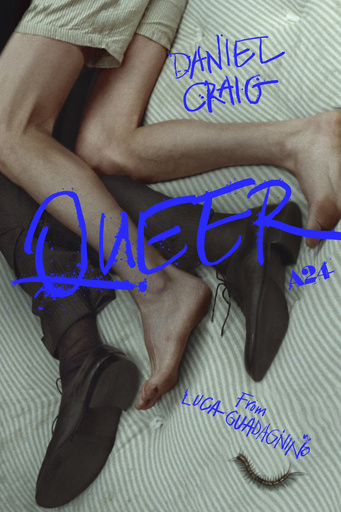
NEW YORK — Daniel Craig recently spoke at the Carlyle Hotel, reflecting on the importance of remaining open to new experiences as we age. He expressed, “As we grow older, we may close ourselves off due to fear, seeking to maintain control over our lives. This, however, can inhibit artistic expression. It is essential to challenge those boundaries—success or failure matters little; what’s crucial is the effort to break free.”
Relaxed and sporting a rugged look, Craig appeared to be shedding the formal constraints of his past as James Bond. The internal struggles that accompanied his iconic role seem to have dissipated since he stepped away from it. At 56, Craig has eagerly embraced fresh challenges. He captivated Broadway audiences in “Macbeth,” and his portrayal of Benoit Blanc in “Glass Onion: A Knives Out Mystery” showcased a witty and charming detective. Now, he delivers a powerful and transformative performance as Lee, a character defined by love and longing in postwar Mexico City, in Luca Guadagnino’s film “Queer.”
Following its premiere at the Venice Film Festival, Craig’s performance has been a focal point of discussion, especially for the film’s candid sexual scenes and its emotional openness, which starkly contrasts with his previous Bond persona. “People mention the challenges of the role or commend my bravery; I think to myself, ‘Not really.’ This is what motivates me to get out of bed each day,” Craig remarked in an interview with Guadagnino.
In “Queer,” Craig portrays a sophisticated American expatriate in 1950s Mexico City named Lee, who navigates a complicated life filled with personal struggles and drug dependency. While he shares traits with his famous 007 character—such as being dapper and accustomed to cocktails—the character diverges sharply in tone and depth. Lee’s infatuation with the enigmatic Allerton, played by Drew Starkey, unfolds in a love story rich with emotional mystery and tension. Their relationship grapples with themes of liberation and the significant consequences of emotional repression.
The film, shot in Rome’s Cinecittà on traditional soundstages, is characterized by its expansive windows and doorways, suggesting a deeper introspection into the choices made about self-discovery and embracing life. Craig highlighted, “Perhaps another portal invites you in—‘Please enter,’ it seems to say. This notion extends beyond acting; it applies to every facet of life. If you don’t embrace this openness, how will you ever understand yourself? The tragedy of that denial far outweighs any embarrassment that might come from engaging fully.”
“Queer” presents a potentially pivotal moment in Craig’s career, with many anticipating his first Academy Award nomination for this role. Meanwhile, Guadagnino has long been passionate about bringing Burroughs’ work to the screen. He first encountered the book in his youth and has carried that enthusiasm throughout his career. His fascination with themes of repression is reflected in Lee’s character, who embodies a complex interplay of vulnerability and exposure.
The journey to create “Queer” was not without its challenges. The original novel remained incomplete, prompting the filmmakers to make creative decisions about the narrative and even include a third-act ayahuasca sequence. They also recognized the importance of showcasing subtle emotional exchanges between characters that would otherwise require extensive written dialogue.
Guadagnino saw Craig as a perfect fit for the role due to his willingness to explore complex emotional landscapes. For Craig, it was a discovery process that led to a deeper understanding of his character. He expressed, “Initially, I found it terrifying. However, everything clicked on the first day of shooting, allowing the character to unfold naturally.”
As for Starkey, the actor faced the unique challenge of portraying Allerton, a character with limited dialogue yet a significant presence. He contemplated Allerton’s journey of self-awareness and the dynamics of power and attraction in his interactions with Lee.
Upon its debut at the Venice Film Festival, much attention was given to the film’s provocative sex scenes, which led Guadagnino to comment on the media’s tendency to sensationalize such moments. He emphasized the film’s intention to depict genuine moments of intimacy and humanity. Craig reinforced this sentiment, expressing that their focus was purely on authenticity and storytelling rather than propriety.
For both actors, their chemistry developed organically, allowing them to form a genuine connection that enhanced their performances. As the film progresses, it’s evident that openness and vulnerability are central themes, reflecting an experience Craig described as among the most fulfilling of his career. With renewed enthusiasm for his craft, he and Guadagnino are already considering future collaborations. Craig concluded, “I don’t have any grand career plans; it’s flowed well up to now, but experiences like this inspire me to keep acting. If I could have more of this in my journey, I would embrace it wholeheartedly.”
